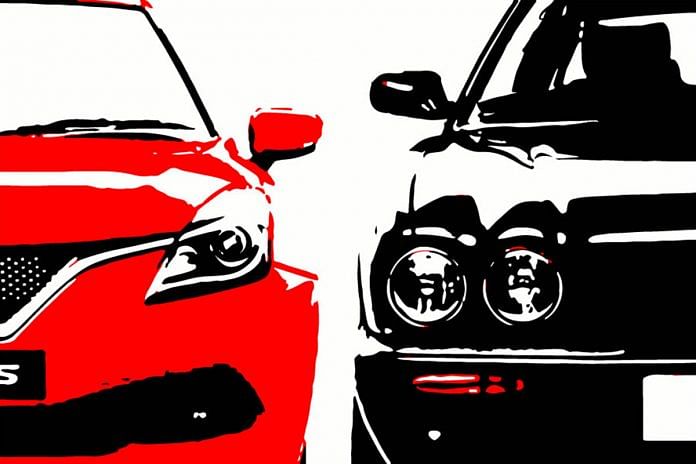Full marks to NITI Aayog’s vice-chairman Rajiv Kumar for getting it right with his company-ownership comment. But Maruti-JLR example is not the full story.
Rajiv Kumar, vice-chairman of the NITI Aayog, said the other day that he didn’t worry much about who owned a company so long as it added to Indian economic activity and created jobs in India. Kumar was promptly challenged by the Swadeshi Jagran Manch, which has a nationalist worldview. It is an important issue, and worth exploring.
Consider two examples: Jaguar Land Rover (JLR) and Maruti Suzuki. The first was bought by Tata for $2.5 billion. The company’s factories are in England and China. The generous R&D budget is spent in the UK. Indians buy hardly any of the half-million high-value vehicles that the company sells annually. In every way (sales, employment, technology), the company has nothing Indian about it. But ownership brings its rewards: Annual pre-tax profits are about 80 per cent of what Tata paid for the company — a successful investment, if ever there was one.

The Maruti Suzuki story is the mirror opposite of this. The company is majority owned by Suzuki Motors of Japan. The 1.7 million cars it turns out annually are sold in India or exported. The company’s staff is almost entirely Indian. Maruti pays massive sums in tax and generates upstream and downstream employment through its vendors and service stations. Indeed, the company earns about as much as Suzuki does in its Japanese market. It is a goldmine for Suzuki, as JLR is for Tata. Along the way, Maruti’s Indian investors too have made a ton of money — the company’s stock has been one of the market’s best performers.
So which should the country rather have: JLR or Maruti? In my book, much the bigger benefit to India comes from Maruti rather than from JLR. Would we swap Suzuki’s receipts from Maruti, in return for tens of thousands of jobs, billions of tax revenue, the development of an auto ancillary industry, and the dollars earned from exporting cars? If we did, we would be the biggest chumps on earth. Similarly, would we be better off if JLR were based in India rather than the UK, had factories here that exported cars in massive numbers to China and elsewhere and, in return for all this plus quality jobs and technology development, we gave up the profit that Tata earns from its ownership of the company? Once again, this is a no-brainer: Ownership has less value in the equation.
Full marks so far to Mr Kumar for getting it right. But he should know that that’s not the whole story. We also have to consider Flipkart, which moved its base to Singapore a few years ago because it found India’s rules for retail restrictive, if not plain stupid. Singapore offered lower tax rates, easier access to finance, and other benefits. As a consequence, when Walmart bought the company last month, India saw little of its investment of about $16 billion, though the investment was for the Indian market. Here is a start-up that has created more shareholder value than perhaps any other, but it couldn’t stay Indian and so the value created has gone mostly to foreigners. Would the country have been better off if its rules of business and its operating environment had been friendlier to start-ups like Flipkart?
And what about Air India, which the Manch is against selling? The first question is: What value does Air India offer the country? It flies aircraft made elsewhere, and uses mostly imported fuel; no domestic value linkages there. Operationally, the business has been marginally in the black with low oil prices and excluding financial charges. But there will always be financing costs, and oil prices go up and down. So this is not an airline with a future, at least under government ownership. Selling it on more liberal terms would leave the taxpayer better off. There is also a chance that the new owner might turn around the airline. The government should ignore the Manch and its dated notions about public sector superiority, and try again.
By special arrangement with Business Standard.




“everything thing cannot be viewed as profit or loss”.The question here to ask each company that operated or owned by our people – Can you provide world class products to Indians at cost effective price. I know the answer is no.this can be possible only when the govt.the companies and offcourse ourselves have to adopt the people centric approach.
wrong question, what ever is better to your wallet is the right answer.
Maruti – whoever owns it – has been a wonderful, successful, Indian story. It started out when China was entering its high growth phase. Had chemistry between India and Japan been strong, if we could have created a more hospitable landscape for large foreign investment, a lot of it meant for exports, created a few Shenzhens of our own, the economic and strategic landscape of Asia would have been more evenly balanced between India and China. 2. If JLR has been a success, Corus was a disaster. One has no swadeshi dogmas, but at this stage of India’s development, our industrialists – which is something Reliance has done – should be making most of their investments at home, not abroad.
If JLR is based or produced in India, its sales would collapse. The premium pricing and luxury brand has everything to do with being a british made/manufacture company, even if the ultimate owner is a shabby Indian. This is the hard reality. For example, if mercedes were made in china rather than germany, how much would it be able to charge for a car?